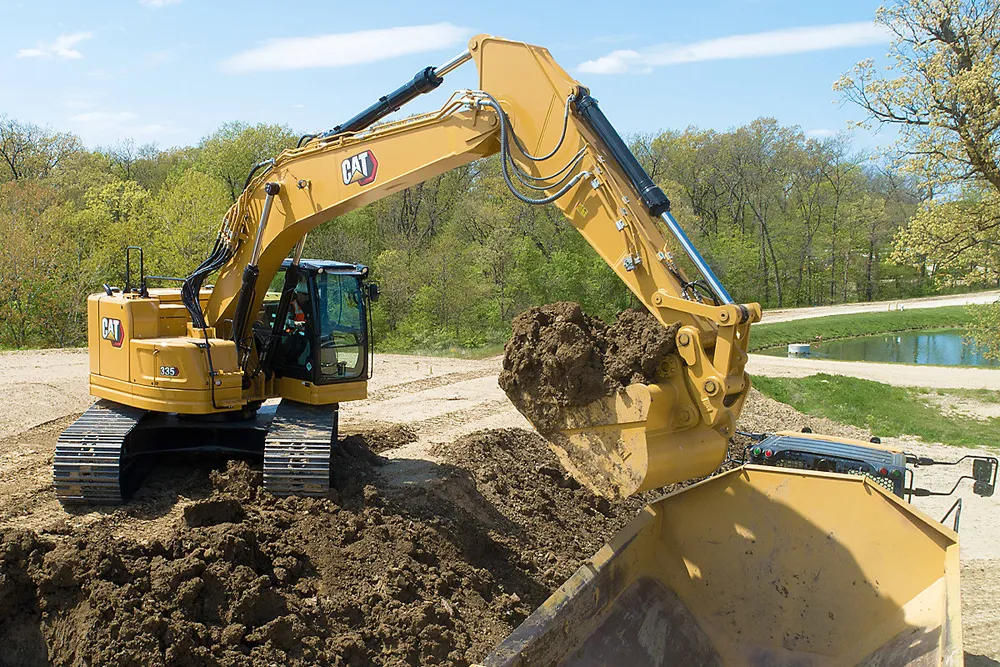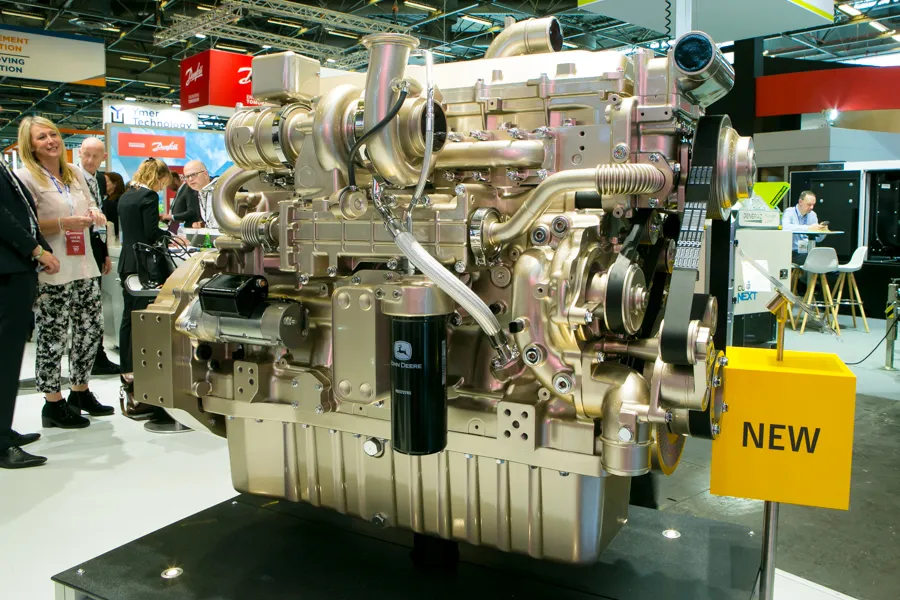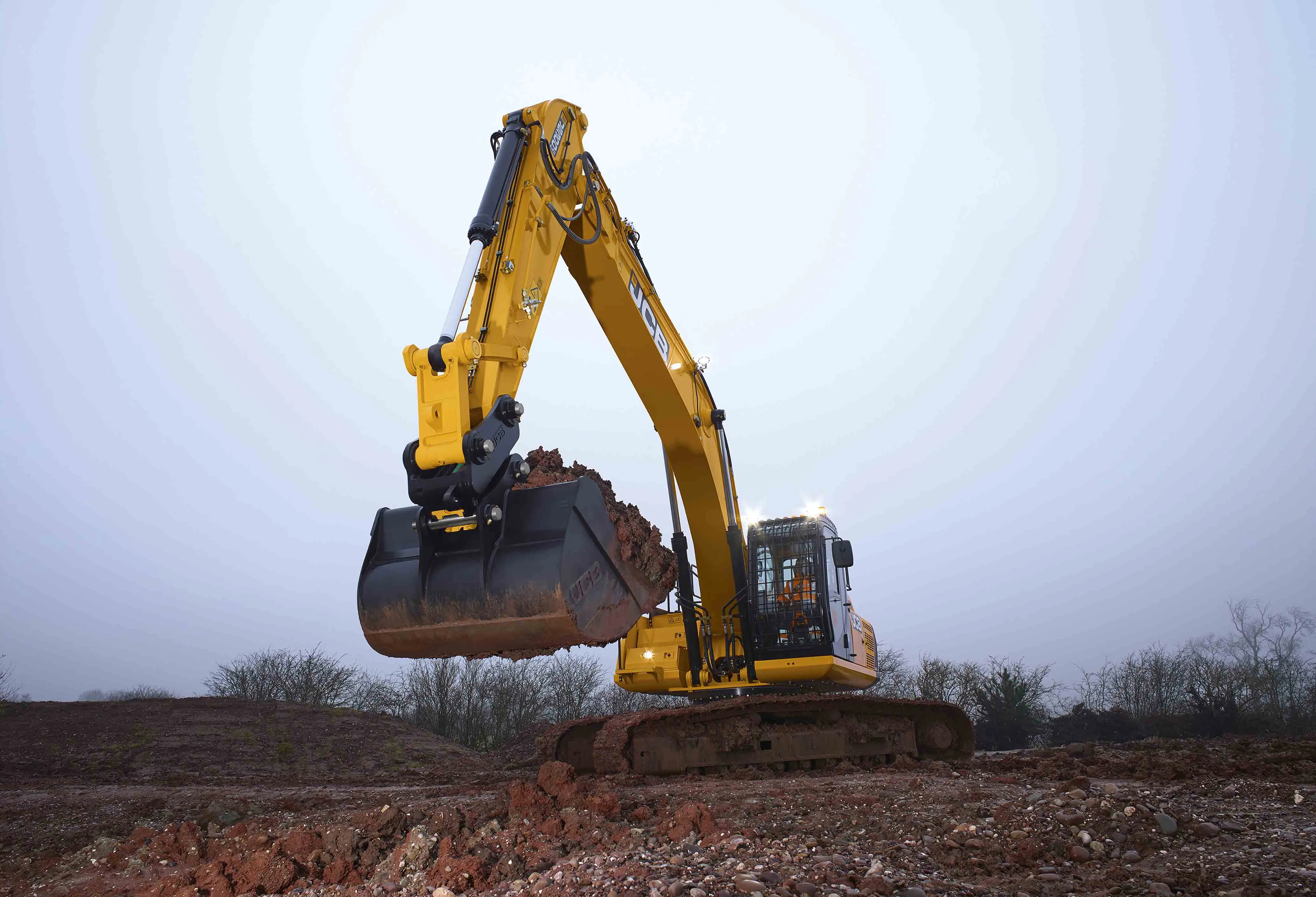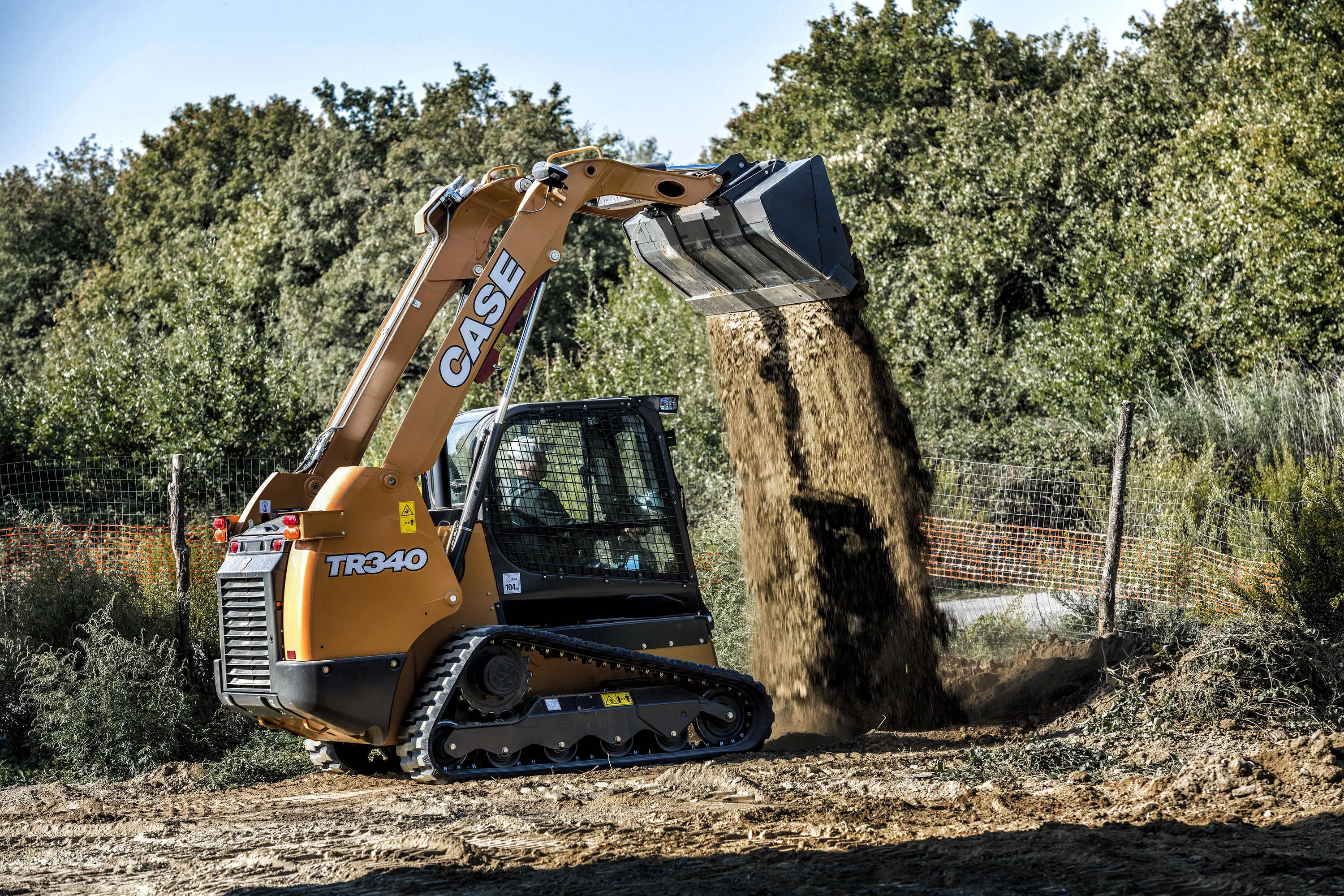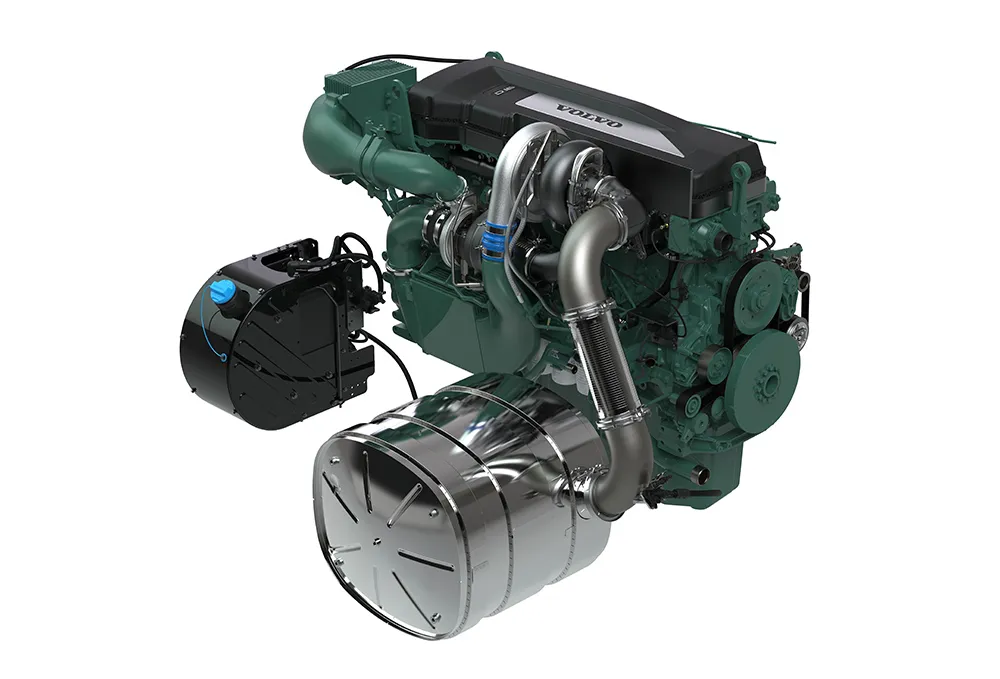
The new Stage V/Tier 4F certified D16 off-road engine is said to be the company’s most powerful and versatile diesel from the company so far. This 16litre engine is designed to meet the needs of customers working across demanding environments such as construction and quarrying.
It has increased power as the Volvo Penta D16’s dual-stage turbo system delivers high performance across the operational range, providing high torque at both low and high engine speeds. This enables the engine to meet the requirements of multiple applications, without operators having to compromise between performance and torque. For example, customers can benefit from both high power and high torque, leading to increased productivity. In applications where the requirement is often for high torque at low rpm, the Volvo Penta D16 is optimised for low fuel consumption.
The engine offers a 10% reduction in fuel consumption. Based on proven technologies within the Volvo Group that have undergone millions of hours of testing and real-world use. Its versatile performance delivery, response, and highly efficient combustion have been proven in use to help customers reduce fuel consumption by up to 10% when compared with the previous Volvo Penta D16 model.
The Volvo Penta D16’s reliable exhaust aftertreatment system (EATS) has been designed to use selective catalytic reduction (SCR) technology only, removing the need for exhaust gas recirculation (EGR) and a diesel particulate filter (DPF). The optimised EATS design ensures high uptime and low total cost of ownership. The dual turbo technology and efficient combustion system also help the engine to achieve industry-leading performance at high altitude. At an altitude of 2,500m, Volvo Penta’s D16 delivers the same performance as it does at sea level.
Built on the dependable in-line six-cylinder design, the Volvo Penta D16 has been developed to produce smooth operation with low noise levels. A durable, compact base engine that is said to be easy to install, the Volvo Penta D16 is built to run. With easily accessible service points, the industrial engine is simple to maintain and now has an extended oil service interval.
Volvo Penta’s 16litre D16 (TWD1683VE) diesel engine delivers 585kW of power and 3650Nm peak torque at 1900rpm. As well as meeting the Stage V and Tier 4 Final emissions regulations, the new engine also complies with MSHA, CANMET, Reg 120, Reg 96, and RoHS2 requirements.


